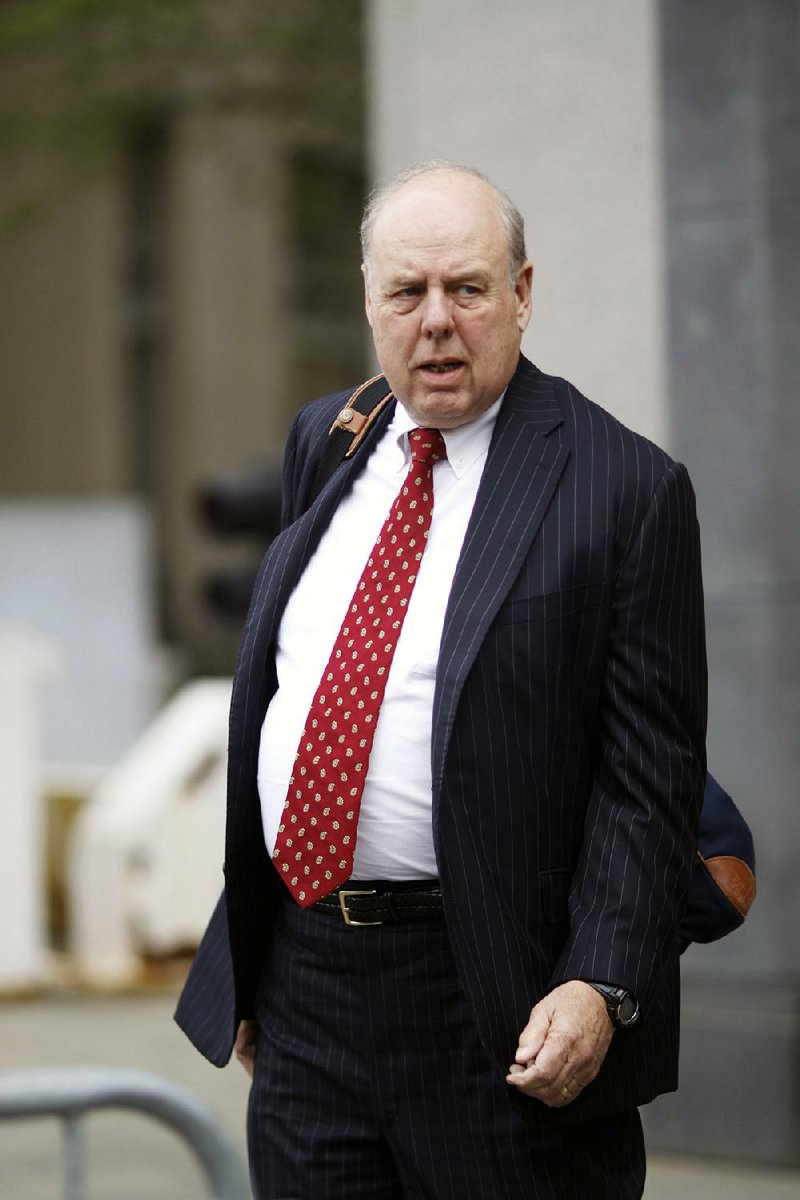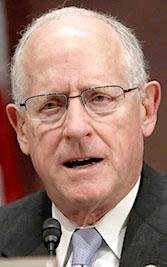WASHINGTON -- President Donald Trump's lead lawyer for the special counsel investigation, John Dowd, resigned Thursday as his strategy for cooperating with the inquiry grew increasingly at odds with Trump's desire for a more aggressive posture.
At the same time, the House Intelligence Committee voted to approve a Republican-written report stating there is no evidence that Trump or his affiliates colluded with the Russian government during the 2016 U.S. election.
Dowd, who took over the president's legal team last summer and considered leaving several times, ultimately concluded that Trump was ignoring his advice, a person briefed on the matter said.
"I love the president," Dowd said in a telephone interview. "I wish him the best of luck. I think he has a really good case."
His departure marked the most significant shake-up for the president's legal team in months and underscores the president's growing frustration with the investigation by special counsel Robert Mueller into Russia's election interference and possible ties to Trump associates as well as whether the president obstructed the inquiry.
The president has in recent days begun publicly assailing Mueller, a shift in tone that appears to be born of Trump's concern that the investigation is bearing down on him more directly. He has also insisted he should sit for an interview with the special counsel's office, even though Dowd believed it was a bad idea.
"Yes, I would like to," the president told reporters at the White House on Thursday. "I would like to."
Trump often keeps his own counsel, and whether he will agree to an interview is uncertain. But he is veering toward the combative approach to the investigation that was supported by his longtime personal lawyer, Marc Kasowitz, who stepped back last summer but was still in contact with the president occasionally over the past several months. He could take on a larger role again, two people close to the president's legal team said.
The president was said to be pleased with Dowd's resignation, as he had grown frustrated with him, particularly over the weekend when Dowd called on the Justice Department to end the special counsel investigation. Dowd, who had forged relationships with the special counsel's office, said at first that he was speaking for the president, but later backtracked.
The president was angered with Dowd's handling of the episode, telling people it was ham-handed and Dowd should not have backed off his initial statement. Dowd, a former Marine Corps captain, has told people that the president has recently implored him to stay but was said to be considering quitting Monday, which he denied in an interview that night.
"I'm sitting here working on the president's case right now," he said.
Despite claiming otherwise on Twitter, the president has expressed displeasure with his legal team for weeks. He has met with veteran Washington lawyer Emmet Flood, who represented President Bill Clinton during impeachment, about coming inside the White House to serve as his top lawyer.
[PRESIDENT TRUMP: Timeline, appointments, executive orders + guide to actions in first year]
Neither Dowd nor Jay Sekulow, the president's other personal lawyer for the investigation, knew about the meeting at the time, and after The New York Times reported about it, were said to be concerned that their standing with the president had fallen. He tried to reassure them on Twitter.
"The Failing New York Times purposely wrote a false story stating that I am unhappy with my legal team on the Russia case and am going to add another lawyer to help out. Wrong. I am VERY happy with my lawyers, John Dowd, Ty Cobb and Jay Sekulow," Trump wrote. "They are doing a great job."
It is not clear who will take over the team. Sekulow is liked by Trump and this week brought on one of his longtime friends, Joseph diGenova.
DiGenova has accused FBI officials of being involved in a "brazen plot" to exonerate Hillary Clinton in the email investigation and to "frame" Trump for nonexistent crimes to join the team.
Cobb, the White House lawyer for the investigation, came aboard about the same time as Dowd and Sekulow, and advocated for cooperating with the special counsel. But the president has discussed with close associates in recent days whether to fire Cobb, while reassuring Cobb that he had no plans to do so.
"John Dowd is a friend and has been a valuable member of our legal team," Sekulow said. "We will continue our ongoing representation of the president and our cooperation with the office of special counsel."
HOUSE PROBE ENDS
In Congress, meanwhile, Republicans on the House Intelligence Committee signaled a conclusion to their Russia investigation.
"It went through," Rep. Michael Conaway, R-Texas, who has led that investigation, said while exiting the committee's secure facilities on Capitol Hill.
While the vote ends the Russia probe for the panel's GOP majority, it only stoked the fury of Democrats, who have denounced their colleagues' findings. The document -- whose public release probably remains weeks away -- also criticizes the U.S. intelligence community's assessment that Russia sought to help Trump win the presidency.
The committee's Republicans released a list of the 44 findings and 26 recommendations outlined in their report, which Conaway estimated to be 250 pages with annexes. It will be sent to the intelligence community for redactions on Monday at the earliest, he added -- that being the deadline for Democrats to submit a statement of the minority's view, which will be included in the final product.
Conaway said Thursday that he hopes the intelligence community can complete its redactions within two weeks so the panel can release the report when Congress returns to Washington in April after a two-week recess.
The findings "show a pattern of Russian active measures in the United States, both through cyber attacks and their use of social media to sow discord," Conaway said in a statement, characterizing the threat to future U.S. elections as "serious." The document also maintains that the intelligence community "did not employ proper analytic tradecraft" in assessing that the Russian government intended to help Trump's campaign.
There was "no evidence that meetings between Trump associates -- including Jeff Sessions -- and official representatives of the Russian government - including Ambassador [Sergey] Kislyak -- reflected collusion, coordination, or conspiracy," the findings state, referring to the attorney general, an adviser to Trump during the campaign.
Information for this article was contributed by Michael S. Schmidt and Maggie Haberman of The New York Times; by Chad Day, Eric Tucker, Zeke Miller and Jonathan Lemire of The Associated Press; and by Karoun Demirjian of The Washington Post.
A Section on 03/23/2018


